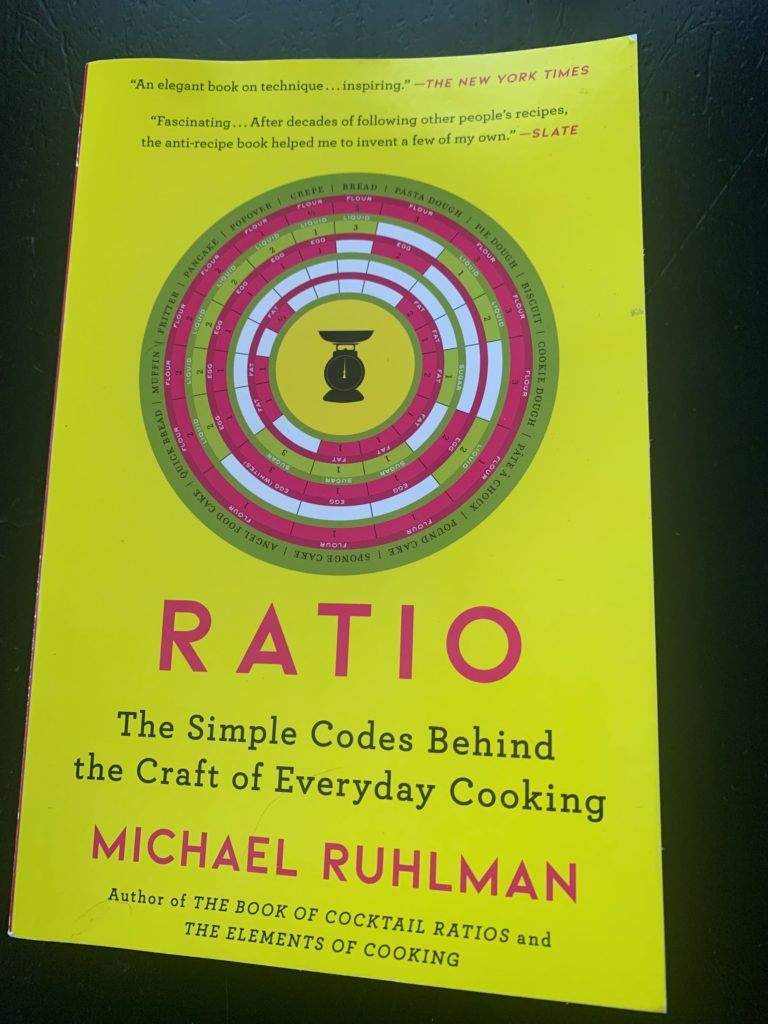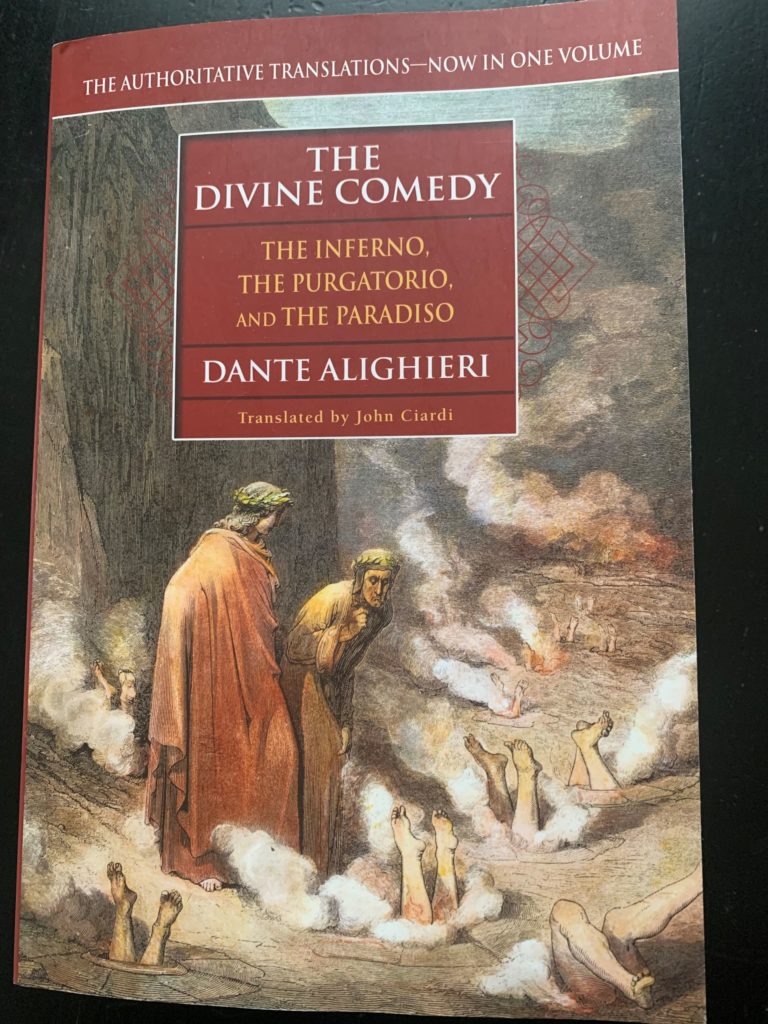Ratio by Michael Ruhlman is the Left Coast Culinary Book Club selection for May. How about that, it is the first of the month and I am already done? Well, you can guess that I have had a lot of reading time lately. It is waiting in the waiting room for doctor’s appointments or sitting by while my wife watches TV or is sleeping. Consequently I finished this month’s book and I am way ahead on Dante’s Divine Comedy.

I didn’t know it at the time, but growing up I was spoiled. My Grandmother was the best pie maker that I knew. The truth is, everybody on that side of my family made good pies. It was only when I got exposed to store made pies that I realized not all pies were equal.
One day I asked my Grandmother what the secret was and she said that my Great Grandmother was a pie maker for a diner and she said that the ratio of the crust was not only easy but also the secret. It was 1 cup flour, 1/2 cup shorting and 1/4 cup water. That turns out to be 4:2;1 in terms of ratios.
Not long after that, I assumed the role of process chemist. I spent a lot of my time scaling batches between the lab, the pilot reactor and full scale batches. I soon learned that it wasn’t the units of things that made a difference but the ratios of ingredients. Once I had the ratios figured out, I could convert to the exact units of measure to my hearts content.
I was excited to read this book. I intuitively knew that ratios were the secret but I had never given much thought to it other than the pie crust. After reading it, I have more mixed feelings about it. Here are some of my thoughts.
First, I would say that probably half of the book was about baking. While I don’t want to split hairs, typically baking and cooking are different disciplines. Certainly at home, it is often the cook is also baking but it set some different expectations from the title and the content. To cement matters, I am not much of a baker nor do I have a ton of interest in it. That is not to say I don’t enjoy a good desert, but I just don’t crave them much along with the clean-up that goes with it.
Of some of the items in the cooking one example was stock making. I find it a stretch that there is a proper proportion of bones to water. This is especially true when Ruhlman agrees with Samin Nosrat that if you cannot use homemade stock, you are better off using water than store purchased stock. I use what I have on hand and that is just fine with me.
Many of the final items were pretty highbrow. There were more French dishes in this book than I have ever read. Many of them I had never heard of either. The final chapter was about custards and he goes on to describe a smoked salmon custard with shrimp halves. Additionally, he talks about making crème brulee. I am not saying home cooks shouldn’t attempt this but it after you make your shrimp custard to top steak, who is making crème brulee?
Finally, I disagreed with some of the ratios. I tend to think that ratios are a starting point in cooking. If you don’t have 2:1:1 ratio of onion, carrots and celery, is it still mirepoix? I think so. Sometimes I use the half of onion that is already cut rather than a whole one. Sometimes I want to finish off the old bag of carrots or celery that is long in the tooth.
Lest you think that I am totally down on this book, I would suggest that for people that are clueless in the kitchen this is a good resource. He does freely state that ratios can be modified in most cases. But, if people do not know how to start, this is a gateway to the science of cooking. There is freedom in not being a slave to a recipe. You can’t get the freedom until you understand each ingredient’s place in the dish.
End Your Programming Routine: As a former chemist doing chemical engineering work, I see ratios in recipes. I find myself scaling for the ingredients on hand or eaters. So, maybe this book isn’t for me necessarily but it might be for you. Especially if you are struggling in the baking department or fine French food. It may change your perspective from a mystery to an art.


Recent Comments